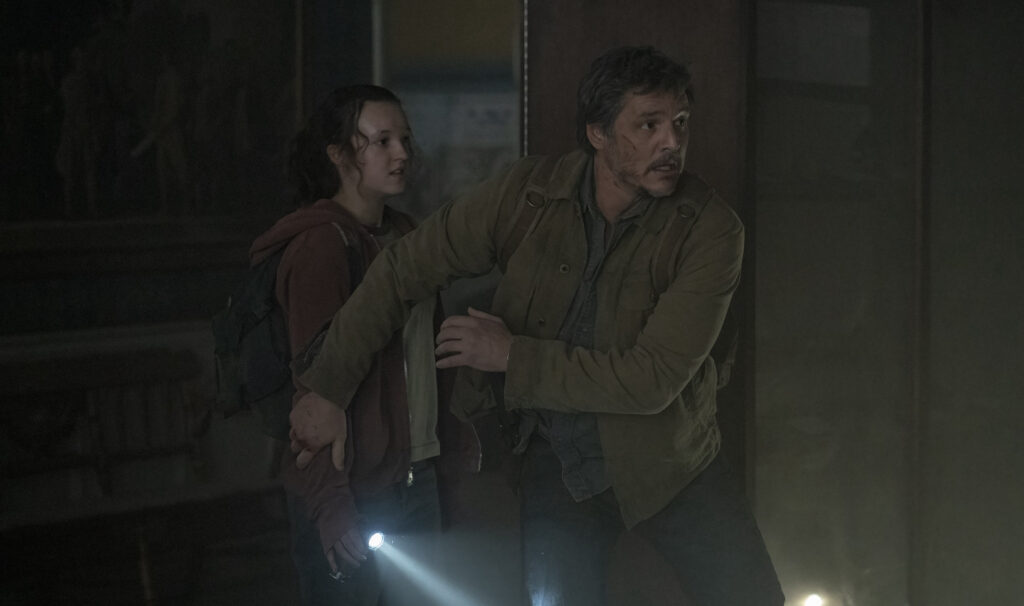From its opening moments, The Last of Us seems engineered to defy preconceptions. HBO’s television adaptation of the hit PlayStation and Naughty Dog post-apocalyptic video game franchise doesn’t open with the game’s thunderous prologue but with a bold zag. It’s 1968 and a Johnny Carson–like host is talking with two panelists about the dangers of a global pandemic—as if to directly acknowledge the 50,000-pound elephant lingering in all virus-centered media post-2020.
The host laughs off the suggested notion of the bolder panelist before asking the otherwise quiet participant about his concerns. He replies with an answer that draws skeptical guffaws from the audience: “Fungi.” In a tense exposition, the scientist states in stark detail how the spores could alter the entire human mind if they evolved to a certain point. The host terrifyingly asks, “If that happens?” The scientist’s pragmatic response sends chills: “We lose.”
Loss is at the heart of The Last of Us. Set in what remains of the U.S. after a parasitic Cordyceps fungus does indeed infect civilization to horrific results, the television adaptation of the action-adventure-horror video game follows the same overarching plot as the game. A resentful smuggler Joel (Pedro Pascal) escorts the 14-year-old Ellie (Bella Ramsey, who played young spitfire Lyanna Mormont in later seasons of Game of Thrones) across the country on a secret, dangerous mission that may hold the key to finding a cure.
The game garnered near-universal praise for blurring the lines between cinematic and interactive storytelling. It’s a deathly serious title—with stakes that feel adult, weighty, human, and worthy of inclusion alongside prestige dramas you’d see on networks like HBO. While the “curse” of the bad video game adaptation is long over, with the successes of projects like Sonic the Hedgehog, Castlevania, The Witcher, and Arcane, The Last of Us carries a certain gravitas. As such, any translation of the game to the screen brings expectations and challenges.

